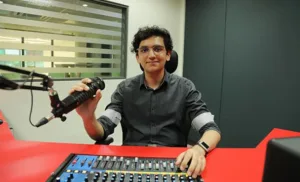The right scholarship can change your life. But before you start sending out applications, make sure that you’re well aware of the do’s and don’ts of the process. Missing a deadline can prolong a scholarship grant for one whole year. Submitting an application without proper supporting documents can render your application void. The trick lies in knowing what steps to follow and avoid.
Point is, anything can go wrong even at the final hour. Fortunately, we have covered some valuable tips to help you improve your chances of landing a scholarship in one of the top schools in Singapore.
Read on to find out!
Things We Should Do While Applying for Scholarship
Do: Start your search early
Some scholarships will ask you to prepare a full year ahead. That’s not to mention how much time it will take obtaining all the requirements. You’ll want to search for scholarship programs early on. Once you know what you’re looking for, you can start putting in the time and effort into building a strong application portfolio.
Do: Give it your all
You probably know by now that you’ll need to try out for more than one grant to increase your chances of getting awarded with a scholarship. That doesn’t mean you should indiscriminately start sending out applications here and there. When you apply for scholarships, choose the programmes wisely.
You’ll want to give each application your very best. If you can’t make that happen, then don’t bother applying to the programme. If you take on too many, you could end up spreading yourself too thin, a move that could cost you your chance at getting a scholarship. Remember, it’s ideal that you try out for more than one. But make sure you can handle all the applications you have applied.
Do: Read the instructions carefully
Before you start answering sections in the application form, go over the entire kit. Some of the questions might result in duplicate answers. By reading through everything first, you can plan your approach much better. You can figure out how to answer those questions in a way that will endorse your skills and talents, what you’re capable of, what you want to achieve with the grant and the qualities that make you the perfect recipient for the award.
Do: Make a timeline
Application deadlines vary, and the requirements will be different from one grant to another. Stay ahead of everything by making a timeline or calendar that contains all the tasks and deadlines related to your ongoing applications. With one glance, you will be able to identify if you’re running behind on work and the tasks you should clear out of your slate this week. Doing this will give you more than enough time to handle everything on-time and help you take a systematic approach to your application.
Do: Proofread your application
Once you have finished your essay, ask someone you trust to proofread it for you. It could be a teacher or mentor, a friend or even your parents. If you have just finished writing your essay or motivation letter, it can be challenging for you to spot the mistakes.
Having someone go over the application will help you identify problem areas like sections you may have missed or writing errors that you may have made. A fresh pair of eyes can easily spot mistakes and provide suggestions that could improve your essay.
Do: Watch Out for Scams
Always check the background of the programme. Is information readily available about the grant? Who were the previous winners, and where are they now? How can you be sure that the scholarship is legitimate? Consider any news or information that surrounds the grant. If there’s little to no details available, that’s a red flag. Also, if the programme asks you for money, chances are it’s a scam.
Things We Should Not Do While Applying for Scholarship
Don’t: Forgetting to answer the question
Don’t get so carried away in your essay that you forget to address the question. Most application kits come with a personal statement essay section. But in your attempt to show the panel that you’re perfect for the grant, don’t forget to answer the question that’s being asked in the application form. Go over your application at least three times to ensure that you have not skipped any relevant questions asked.
Don’t: Letting others write the essay
We have heard of people having someone else write their essay for them. This is not the best way to proceed. It would mean so much more to you if you get the scholarship through your efforts. If you’re already having a hard time with the application, how do you plan to survive school once you get in? Doing the work is an excellent first step in the right direction, and it helps prepare you for what’s ahead.
Don’t: Assuming you won’t get the scholarship
Many students never try for scholarships because they think right off the bat that they have little to no chance of ever winning a scholarship. But that’s not true.
Many scholarships are actually geared towards sports skills or extracurricular skills. Educational grants aren’t all about academic strength. If you have an impressive extracurricular portfolio, have an excellent record as a student, or you are known for being a role model, you stand a pretty good chance of bagging a scholarship even if your academic grades are not that impressive.
If you’re thinking about giving it a try, don’t let doubts stop you from giving it a shot. Look for non-academic scholarships. You will be surprised at the results.
Don’t: Giving up too soon
You might not get a scholarship on your first try. That doesn’t mean you should stop trying. There are plenty of grants for every year that you’re in primary or secondary school. Keep trying. The more applications you send out, the more you improve in your approach.
By the time you’re ready to apply for a grant for your last two years in high school, you have more than enough chances of getting that scholarship. Practice makes perfect. If you keep working on your grades and extracurricular portfolio, you have a strong chance of getting a grant sooner or later.
Don’t: Missing the deadline
That’s one of the worst mistakes that you can make. Programmes often have strict submission deadlines. If you miss it by even an hour or a day, your submission will be automatically rejected.
Make sure that doesn’t happen by checking the dates and creating a timeline to ensure you send your application well before the final day.
Don’t: Procrastinate
Some programmes need you to prepare a year ahead. It can be tempting, though, to put off working on the application kit because in your head, you still have plenty of time to get that done. But if you’re applying for a grant that will cover your last two years in high school, for instance, then keep in mind that those years are the busiest.
Starting on your application early will give you plenty of time to work on your essay and give it your best possible effort. If you have any hard-to-obtain documents or files, the time you have will prove handy in allowing you to get them or have them processed so they’ll be more than ready when you send your application. Also, procrastinating can leave you stressed and that’s hardly the best mood to be in when you’re trying to beat all the other applicants who are applying for the same grant as you.
If you’re stressed and are rushing your application, you’re likely to make mistakes. So do not apply for scholarships when you’re stressed or ill-prepared. All it will do is backfire.
Conclusion
This blog has covered some of the most helpful do’s and don’ts for scholarship applications. Inculcate these practices to bolster your chances of landing the scholarships you are after.
































